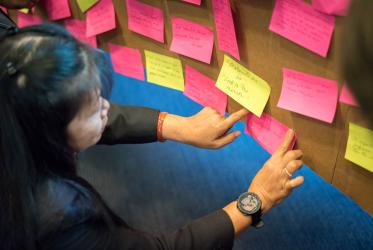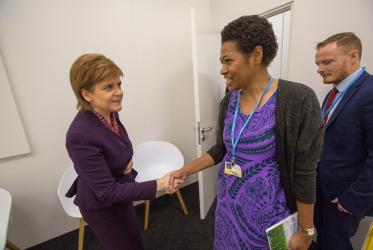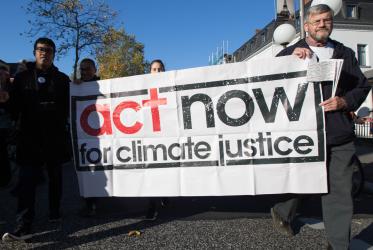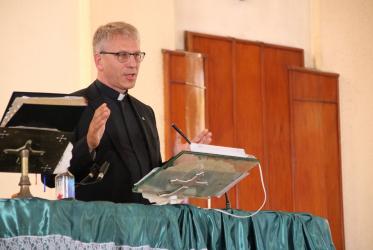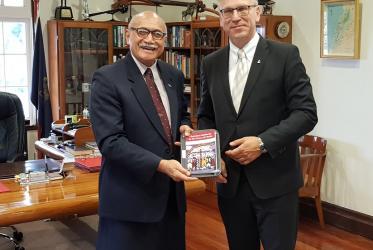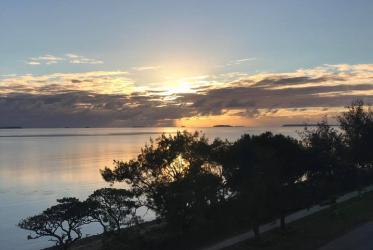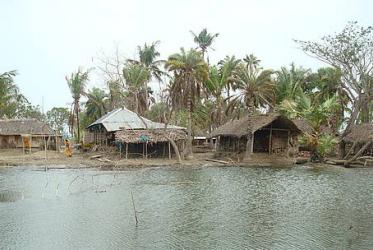Displaying 21 - 34 of 34
25 July 2018
WCC presents interfaith statement to COP23 high level plenary
16 November 2017
First minister of Scotland meets WCC delegation at COP23
16 November 2017
Fijian Methodists call for prayers for COP23
07 November 2017
Global churches act together for climate justice in call to COP23
04 November 2017
In Fiji, “time to go beyond the reef”
14 August 2017
Hopes shared in Tonga, where dawn starts first
06 August 2017
Indigenous faith leaders reflect on resilience and climate change
23 September 2014

